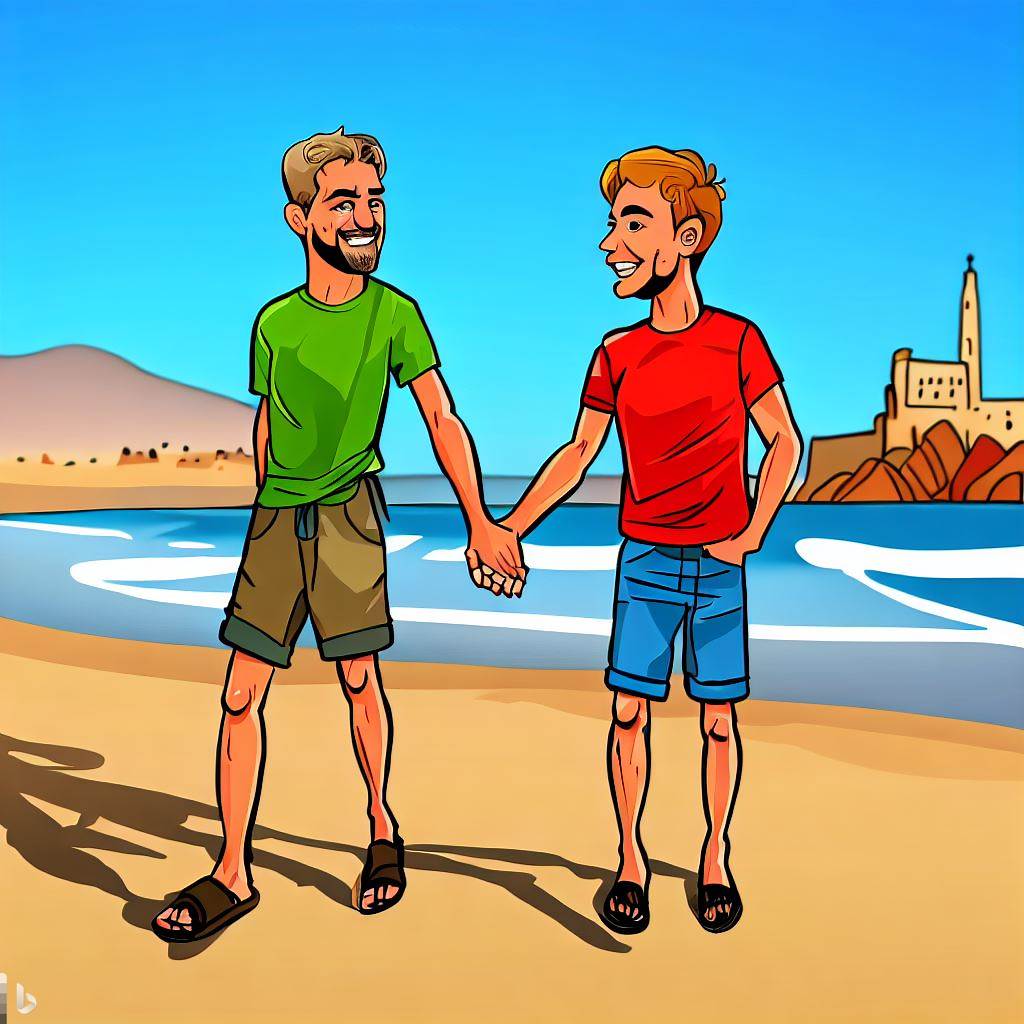
Is it Safe for LGBT Travel in Morocco? A Comprehensive Guide
As the world becomes more accepting and understanding, the question of safety for LGBT travellers in various parts of the world is a pertinent one. In this comprehensive guide, we delve into the realities, challenges, and joys of LGBT travel in Morocco, with a special focus on the vibrant city of Agadir.
From understanding the cultural nuances to exploring the best destinations for LGBT travellers in Northern Africa, this guide aims to provide you with all the information you need to make an informed decision about your travel plans.
Table of Contents
- Understanding the Cultural Landscape
- Safety for LGBT Travellers in Morocco
- Agadir: A Beacon of Acceptance
- Other LGBT-friendly Destinations in Northern Africa
- Common Misconceptions about LGBT Travel in Morocco
- Key Takeaways
- Conclusion
Understanding the Cultural Landscape
Before embarking on a journey to Safety for LGBT Travellers in Morocco
As with any travel destination, safety can vary depending on where you are and how openly you display your sexuality. In larger cities like Marrakech and Casablanca, and in tourist areas like Agadir, you're likely to find a more liberal attitude towards homosexuality. However, public displays of affection, regardless of sexual orientation, are generally frowned upon in Morocco. It's recommended to be discreet about your sexuality, particularly in more rural areas or smaller towns where attitudes may be more conservative. As always, it's important to respect local customs and laws during your visit. Agadir, a popular tourist destination in Morocco, is known for its more liberal attitudes and welcoming atmosphere. The city is home to a vibrant LGBT community and has a number of gay-friendly establishments. While it's still recommended to be discreet, Agadir offers a safe and welcoming environment for LGBT travellers. For a deeper dive into the LGBT community in Agadir, check out our blog post on Exploring LGBT Tourism in Morocco. Agadir offers a wealth of activities for all travellers. From exploring the natural beauty of Paradise Valley to embarking on an ATV Quad Biking Safari, there's something for everyone. For a truly unique experience, consider a sunset camel ride along the Flamingo River or a Desert Safari Jeep Tour. You can book tickets and activities online with our best price guarantee. Read reviews about top tours and attractions in Agadir here. While Morocco offers its own unique charm, there are other destinations in Northern Africa that are known for being LGBT-friendly. Here are a few options to consider: Despite having similar laws to Morocco, Tunisia has been making strides in LGBT rights in recent years. The capital city, Tunis, has a growing LGBT community and is home to several gay-friendly establishments. However, like Morocco, discretion is advised. Algeria is another country with a complex relationship with LGBT rights. While homosexuality is illegal, the law is rarely enforced, and there is a small but vibrant LGBT community in the capital city of Algiers. While not in Northern Africa, it's worth mentioning South Africa as it's often considered the most gay-friendly country on the continent. With full legal protection and a vibrant LGBT scene, particularly in cities like Cape Town and Johannesburg, South Africa is a great option for LGBT travellers. As summer reaches its peak, many travellers set their sights on exotic destinations. Morocco, with its rich culture, stunning landscapes, and enticing cuisine, is a top choice for many. But one question often arises - "How hot does Morocco get in August?" In this comprehensive guide, we'll delve into the specifics of Morocco's August weather, providing you with all the information you need to plan your perfect summer getaway. From average temperatures to what to pack, we've got you covered. When it comes to LGBT travel in Morocco, there are a few misconceptions that often circulate. Let's debunk some of these myths: While it's true that homosexuality is technically illegal in Morocco, the reality is that the law is rarely enforced, especially in larger cities and tourist areas. Many LGBT travellers have visited Morocco without incident. However, it's always important to be aware of local laws and customs, and to exercise discretion. While attitudes can vary, many Moroccans are welcoming and hospitable to all travellers, including those from the LGBT community. This is especially true in larger cities and tourist areas like Agadir. While it's true that there are no openly gay bars or clubs in Morocco, there are many establishments that are known to be gay-friendly. This is especially true in larger cities and tourist areas. When it comes to LGBT travel in Morocco, there are a few key takeaways to keep in mind: Exploring the world as an LGBT traveller can be a rich and rewarding experience, but it's important to do so with an understanding of the cultural and legal landscape of your chosen destination. Morocco, with its vibrant cities, rich history, and diverse culture, offers much to the LGBT traveller. However, it's important to approach your journey with respect for local customs and laws. While there are challenges, many LGBT travellers have found Morocco, particularly the city of Agadir, to be a welcoming and safe destination. With its vibrant LGBT community and liberal attitudes, Agadir stands as a beacon of acceptance in the region. Other destinations in Northern Africa, such as Tunisia and Algeria, also offer potential for LGBT travellers. While they too have their challenges, they are making strides in acceptance and rights for the LGBT community. Ultimately, the decision to travel to Morocco or any other destination as an LGBT traveller is a personal one. It's important to do your research, understand the risks, and make the decision that's right for you. We hope this guide has provided you with valuable information to help you make that decision.See Also: A Comprehensive Guide to Weather in Agadir by Month
Agadir: A Beacon of Acceptance
Activities in Agadir
Other LGBT-friendly Destinations in Northern Africa
Tunisia
Algeria
South Africa
See Also: The Ultimate Agadir Guide: Discover the Jewel of Morocco
Common Misconceptions about LGBT Travel in Morocco
Myth 1: It's Completely Unsafe for LGBT Travellers
Myth 2: Moroccans are Unwelcoming to LGBT Travellers
Myth 3: There are No Gay-Friendly Establishments in Morocco
Key Takeaways
Conclusion
Related Articles:
Recommended Resources:
